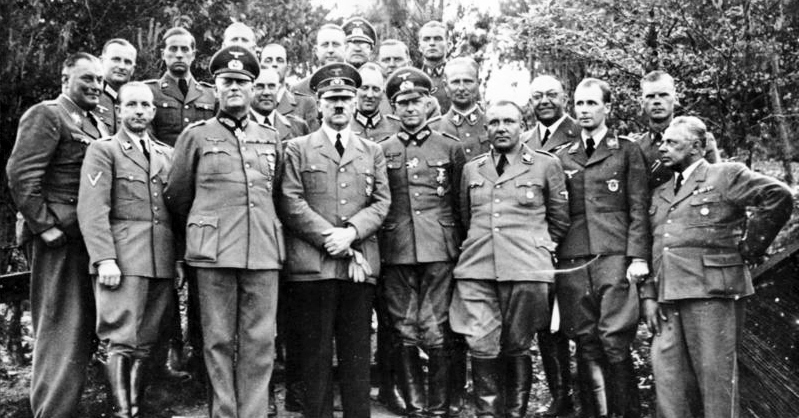A new German study, recently released, says the country’s post-World War Two justice ministry was overrun with ex-Nazis who protected their former comrades.
In 1957, 77% of them had been former members of the Nazi Party, the study determined. That proportion is higher than during the Third Reich of 1933-45.
They didn’t expect such a pronounced number, said Christoph Safferling, who assessed previous ministry personnel files.
The study explains why such a high number of Nazi war criminals didn’t end up in jail.
Lawyers from the Nazi era covered up old injustices instead of uncovering them, said Heiko Maas, Germany’s justice minister.
Although the report only dealt with bureaucrats in the ministry, it estimates the number for the wider justice system.
Officials questioned about their function in the Holocaust usually pleaded ignorance, saying they had only obeyed orders or protested they had prevented worse crimes by doing their jobs.
“There are never words of remorse, only excuses,” said Safferling.
Ninety of the 170 senior ministry officials between 1949 and the early 1970s had been former members of the Nazi Party. Many had served as judges during the Holocaust era imposing death sentences, explained previous justice minister Sabine Leutheusser-Schnarrenberger, who initiated the study in 2012.
The report sheds new light on the previous post-war era’s mutual forgetfulness about Nazi offenses in what was then West Germany.
As a result of western allies occupying the country and other reasons, West German courts only sentenced about 6,650 former Nazis, a small fraction of party members.
A basic change only occurred later after most war criminals were deceased, with the case of Ukrainian-American John Demjanjuk, an auto plant worker in Ohio and a former death camp guard, The Telegraph reported.
A German court convicted him in 2011 but not for crimes he could be connected with directly, but on the finding that he had been a cog in the fascist killing mechanism in occupied Poland at the Sobibor camp.
While proponents believe such trials have finally brought justice, others criticize them as insufficient and tardy.
